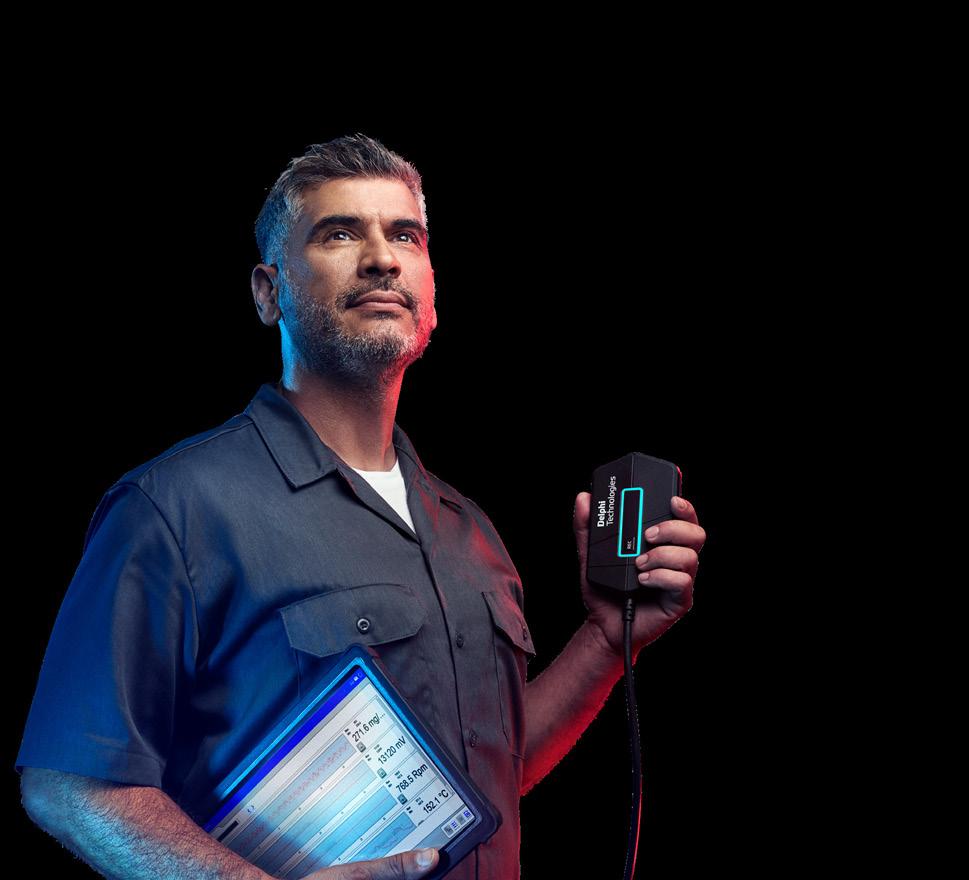
2 minute read
BE READY FOR AUTONOMOUS VEHICLES
When will autonomous driving arrive and what skills will workshops need to learn?
Fully autonomous vehicles (AVs) are already in development around the world, but their growth will be a slow and steady process. Widespread use of AVs is probably a decade away even for the companies that have been already working on them for years. Numerous obstacles have to be overcome for autonomous driving to become mainstream. Most of these are safety issues, and in particular the challenges of addressing the interaction between AVs and manually operated vehicles as well as pedestrians, cyclists and other road users.
Advertisement
What does this mean for technicians today and in the future?
AVs will bring increased usage and an increased need for repairs, because they will be in operation more than other vehicles. So, while the market may be slow to develop, there will be lots of work for garages and workshops when they do arrive.
Much of the technology of AVs will be similar to other vehicles, but particularly electric vehicles and hybrid vehicles. So it’s a good idea, if preparing to work on AVs, that technicians first get themselves familiar with ADAS functions and servicing. Radar and lidar systems that we are starting to see on vehicles will be the same systems that an AV will use to detect the environment and hazards.
As well as some of the more conventional technologies present, AVs will bring some highly advanced systems that technicians will need to understand and be able to service. Some of these areas include programming, machine learning and AI, and robotics

What does ‘autonomous’ actually mean?
The industry typically puts autonomous vehicles (AVs) in categories according to the amount of autonomous technology they include:
Level 0 - No automation at all, on any system on the vehicle. All vehicle operation fully dependant on a person.
Level 1 - automation includes some small steering or acceleration tasks performed by the car without human intervention, but everything else fully under human control.
Level 2 - automation is similar to advanced cruise control or original autopilot system. The car can automatically take safety actions, but there is still a need for the driver to stay alert.
Level 3 - automation still needs a human driver, but the driver is able to hand over some “safety-critical functions” to the vehicle, under certain traffic or environmental conditions.
Level 4 - automation is a car that can drive itself almost all the time without any human input, but might be programmed not to drive in unmapped areas or during severe weather.
Level 5 - automation means full automation in all conditions.
AVs – the future of mobility...
Autonomous vehicles are the coming age of mobility. There’s no question that when they arrive, they’ll transform our lives as well as the way vehicles are serviced.
AVs should be on the technicians long-term radar in terms of new skillsets to acquire. Delphi Technologies is here to help by delivering expert training on the latest technologies.
Dear Reader,
For this, the first 2023 edition of INSIDE magazine, we would like to focus on the mega trends that our industry is facing.
Welcome From The Ceo
NEXUS, as a leading player, is connecting the leaders of the AA and investing in innovative and sustainable models to lead the revolution of the industry including digitalization, transformation and sustainable mobility. Since 2014, our purpose has been to move the sector forward, to innovate, invest, to be able to support these major priorities as well as accelerate the growth of our community. Our aim is to offer you the big picture and identify the challenges of tomorrow.
So, in this new edition of INSIDE, we share some thoughts, inputs and solutions deployed by our community - prior to the NEXUS Business Forum, which will take place 21 - 23 March, in Montreal.
For the very first time, we are organizing the NEXUS Climate Day with the key players of sustainability in order to draw together the concrete actions that the community could deploy to be more sustainable.

Addressing the evolution of the market will give us the opportunity to reach new heights together. We hope you will find it inspiring! Now enjoy reading IN!SIDE magazine.
Gaël Escribe CEO of NEXUS Automotive International











